Key takeaways:
- Recording live shows captures unforgettable moments and enhances audience engagement, offering artists valuable insights for improvement.
- Live recordings serve as powerful marketing tools, expanding reach and fostering community connections with new listeners.
- Preparation, spontaneity, and audience interaction are crucial for successful performances, as they enhance both confidence and the overall experience.
- Technical elements like microphone placement, instrument balance, and quality equipment significantly affect recording quality and should not be overlooked.
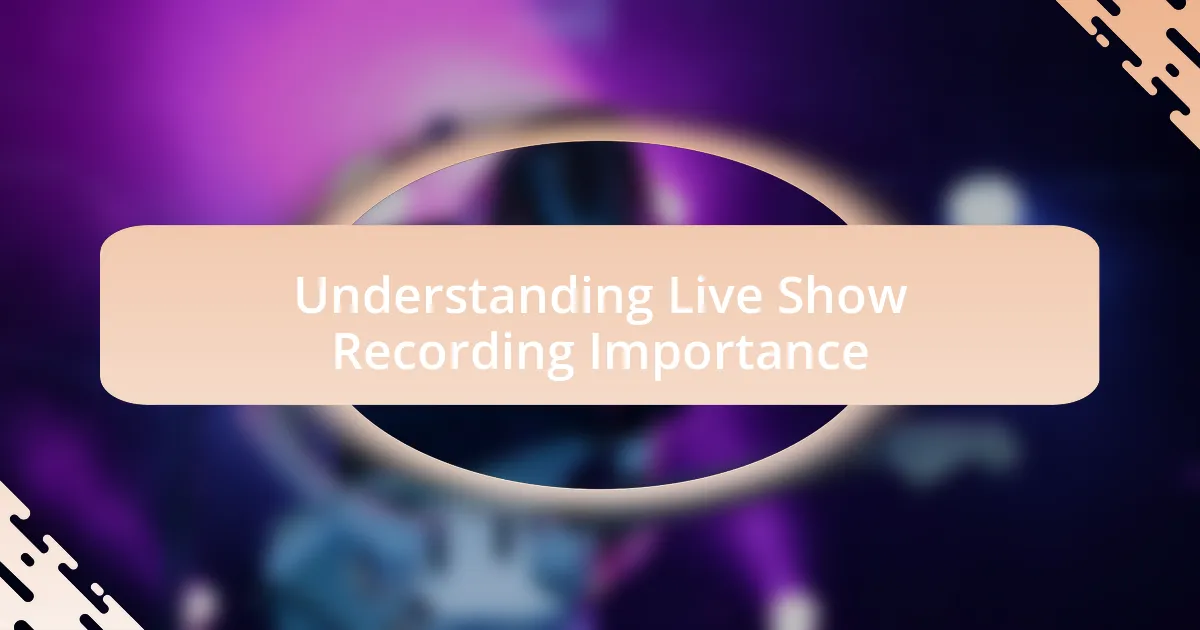
Understanding Live Show Recording Importance
Recording live shows holds a unique significance for both artists and fans. From my experience, capturing the energy of a performance can immortalize that special moment when the crowd connects with the music. Have you ever listened to a live recording and felt transported back to the atmosphere of that event? It’s incredible how a simple track can evoke powerful memories.
Moreover, these recordings serve as invaluable tools for assessing and improving live performance. I remember listening back to my own shows and cringing at certain parts, which highlighted areas for growth. It’s not just about the music; it’s about understanding how to engage the audience better and refine your stage presence. How often do we get the chance to evaluate ourselves in real-time like this?
Additionally, live show recordings can expand your reach beyond the immediate audience. I once shared a recording of an intimate local gig, and it unexpectedly caught the attention of music bloggers who loved that genuine vibe. Is there a better way to showcase your artistry than through the raw energy of a live performance? Such moments can resonate with listeners far and wide, amplifying your band’s visibility in ways you may not initially anticipate.
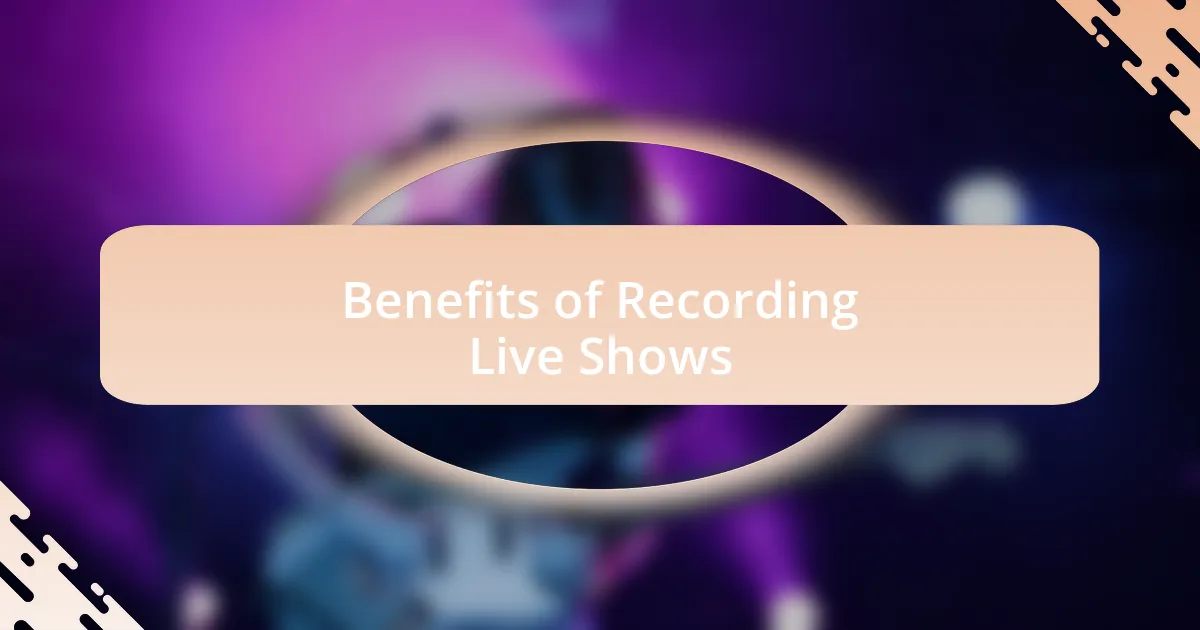
Benefits of Recording Live Shows
Recording live shows provides artists with an authentic representation of their music in its truest form. I recall one particular performance where the crowd’s energy filled the air, and capturing that moment on tape turned out to be a treasure. Listening to the recording later not only highlighted the connection with fans but also reminded me of the excitement of that night, making the experience timeless.
Additionally, live recordings can be a powerful marketing tool. I once posted a snippet of a particularly wild show on social media, and to my surprise, it drew interest from a whole new audience. This kind of exposure fosters community and connects you with fans who might never have discovered you otherwise. How else can you share such an exhilarating experience and potentially grow your listener base?
Finally, the process of recording live performances helps in building confidence. There’s something about hearing my own voice in a raw format that pushes me to refine my sound. I often ask myself, how can I improve next time? This self-reflection after listening to a set encourages continuous growth, making every performance an opportunity to enhance my craft.
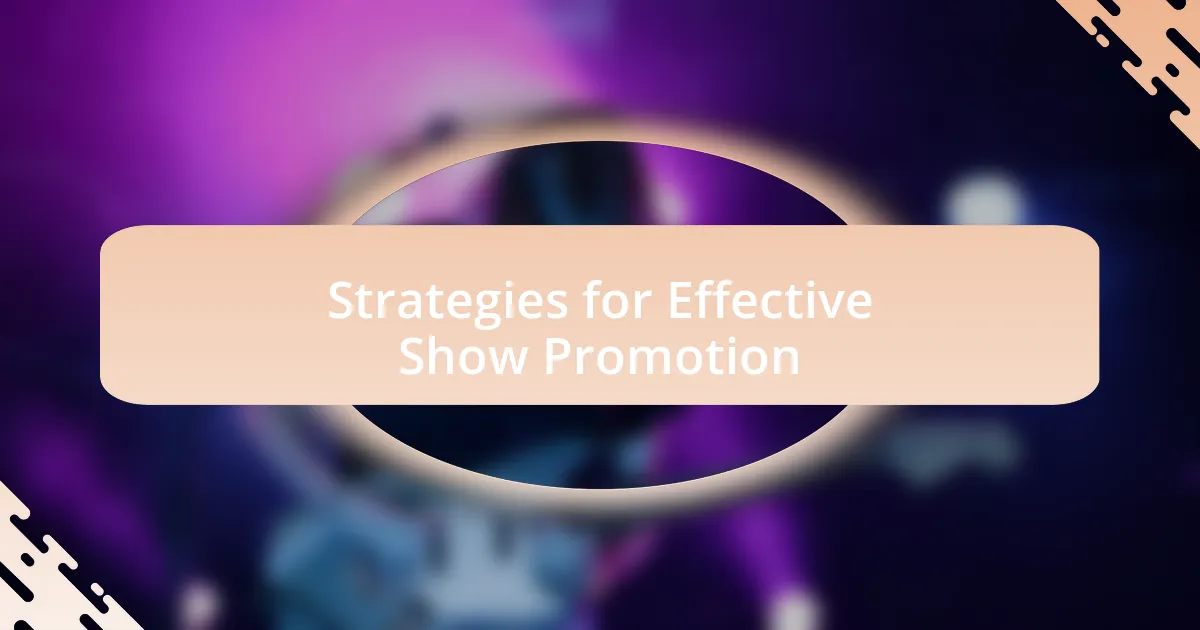
Strategies for Effective Show Promotion
When it comes to promoting live shows, leveraging social media is vital. I remember a time when I created engaging posts leading up to a concert, sharing behind-the-scenes glimpses and sneak peeks of our setlist. The anticipation built online translated into a packed venue, proving that personal touches resonate with fans.
Email newsletters can be another effective avenue for promotion. After launching a campaign to keep my fans updated on upcoming shows, I noticed a significant spike in ticket sales. It’s important to make each message feel personal, perhaps including anecdotes about what fans can expect to experience. How many times have you opened an email that felt like a conversation with a friend? That’s the warmth I aim for in my outreach.
Collaborating with local businesses can also amplify your show’s visibility. Partnering with a nearby café to offer ticket packages created a win-win situation, where we both benefited from increased foot traffic. Reflecting on this experience, it’s clear that forming alliances within your community not only broadens your audience but fosters a sense of camaraderie. Have you ever considered how local partnerships could enhance your own promotional efforts? They might be the key to unlocking new opportunities.
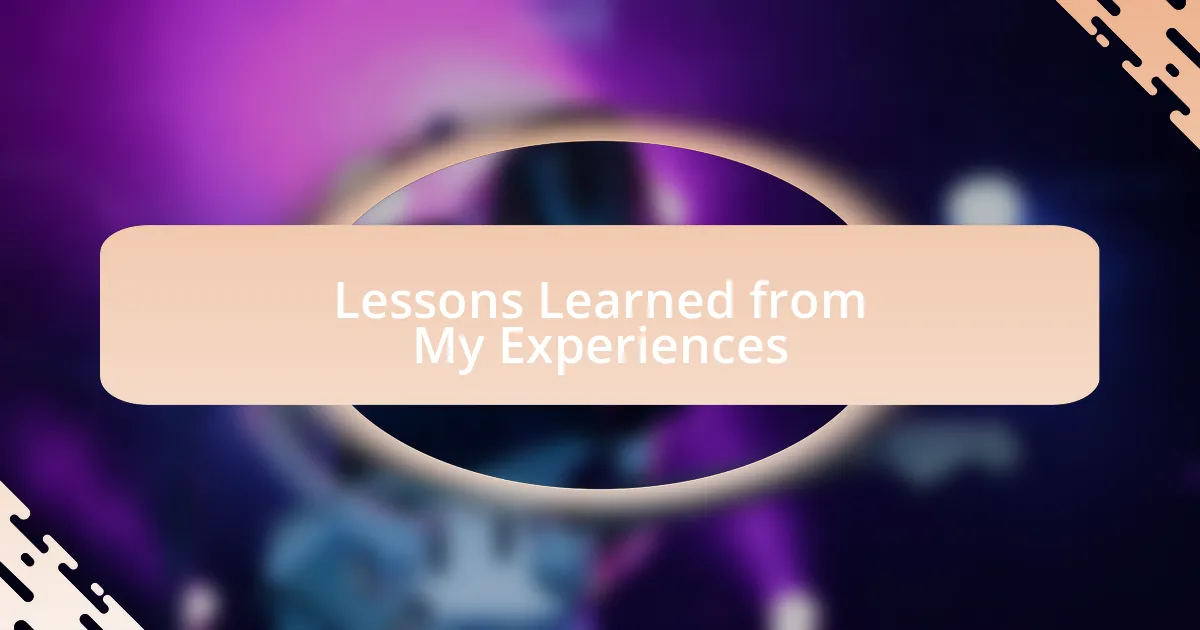
Lessons Learned from My Experiences
Recording live shows has taught me the power of preparation. I vividly recall a night where technical issues nearly derailed our performance. The experience humbled me, reinforcing the importance of sound checks and rehearsals. Now, I approach every show with a checklist, because I believe that being well-prepared not only boosts confidence but also elevates the entire experience for both the band and the audience.
During one of our recordings, I learned that spontaneity can breathe life into a performance. We decided to play a new song on a whim, and the audience’s reaction was electric—they loved it! This taught me that sometimes, breaking away from the script can create unforgettable moments. Has a surprise twist ever changed the course of your own experiences? Embracing spontaneity can lead to unexpected joy.
I also came to appreciate the value of listening to feedback. After a show, I used to shy away from criticism, but one particularly candid comment from a fan resonated deeply with me. They suggested we engage more during our set, and their insight changed how I interact with the audience. Engaging with fans not only enhances the atmosphere but also builds lasting connections. Have you ever thought about how audience interaction shapes your overall performance? It’s a game-changer that nurtures a more vibrant musical community.
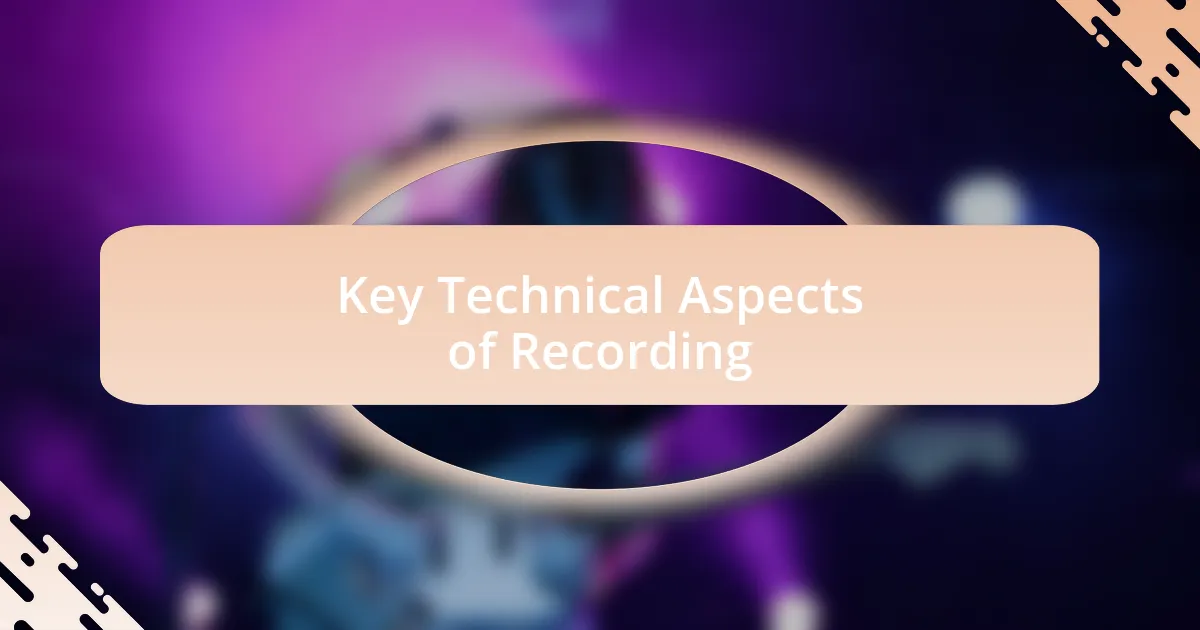
Key Technical Aspects of Recording
One crucial technical aspect of recording live shows is microphone placement. I recall one performance where we forgot to adjust the mics for the venue’s acoustics. The sound was muddied and lacked clarity, which was disappointing. This experience taught me that understanding your space and adjusting mic positioning can dramatically enhance the recording quality. Have you considered how the environment can shape your sound?
Another vital element is the balance between the instruments. During an unforgettable gig, I was tasked with mixing the levels on the fly. I distinctly remember the moment I adjusted the guitar just right behind the vocals—the harmony was incredible! It reinforced for me that achieving the right balance can turn a good recording into an extraordinary one. Do you take time to mix your sound live, or do you leave it to post-production?
Finally, paying attention to the recording equipment itself is paramount. I learned this the hard way when using subpar gear at a historic venue. By the end of the set, the sound was thin and disappointing. This was a wake-up call for me to invest in quality equipment. Do you feel confident in the gear you use? Understanding the importance of your tools can truly elevate your live recordings.